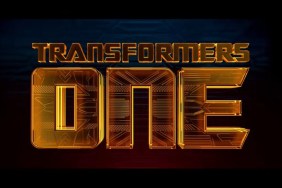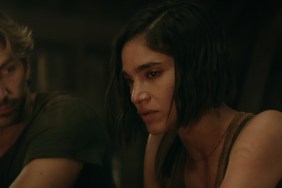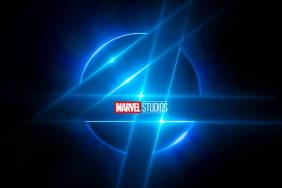


The 3D Conversion Debate and Wrapping Up
3D definitely has been a big thing in the last few years and it’s been a major part of almost every set visit we’ve done, although in this case, they weren’t filming in 3D but went into the production knowing they were going to convert the movie into 3D after filming. It’s a strange decision because there’s been such a backlash towards 3D conversion, but Spirit of Vengeance is being released in the weeks directly between 3D conversions of George Lucas’ Star Wars: Episode I and James Cameron’s Titanic, which should change some minds about doing 3D after the fact. It’s especially interesting for Neveldine and Taylor because of their kinetic filmmaking style and how that may translate.
Taylor spoke to us about the decision to do 3D post-conversion and how this decision affects the way they make movies. “This is really going to push the envelope of what people think can be converted, ’cause there’s a rulebook of things you can’t do if you’re shooting 2D to go to 3D,” he told us. “I mean, there’s a lot of things. You can’t have fast cuts, because it’s disorienting, and it will make people throw up. Of course, that doesn’t work for us, we gotta have fast cuts. It is valid if it’s true but we don’t think it’s true because there’s ways around that, there’s ways we can finesse the transitions between the 3D and sort of modulate the depth of it to completely get rid of that. You can’t have lens flares, you can’t have soft foreground… things that we’re used to as part of the film language. You can’t have something soft in the foreground and sharp in the background. That’s the movie language, so sometimes that’s shot 2D for conversion can end up looking really stiff. They don’t want to have a lot of handheld or a lot of motion or movement. ‘Could you just slow everything down so we can track it and convert it and make it look beautiful in 2D?’ But the guys we’re working with and sort of the theory we have going into this, we’re throwing all of that away. We’re throwing the whole rulebook away and this is going to be a movie that doesn’t feel like other 3D movies, really. It’s going to be very kinetic and very fast-moving and very much the language of film that we love. It’ll just be in 3D.”
(We had a chance to speak to the film’s stereographer, but between our jet lag and the darkened interview space, we were barely able to follow what he had to say about the technical side of the conversion.)
Before we left, we went out to the backlot where the 2nd unit was shooting a scene involving Ghost Rider attacking Carrigan’s headquarters in a quarry. They had rebuilt a part of the quarry, including Carrigan’s office, in back of the studio and we watched as a bunch of Carrigan’s armed mercenaries, shot into the air at a large array of lights hung by a crane, which represented Ghost Rider on his bike zooming down towards them.
Unfortunately we didn’t get to see Nicolas Cage at all as the Ghost Rider, though that’s been satisfied by recent trailers. We did learn a lot about the look and feel of the movie as well as how some of the actors are approaching the material, so we’re quite optimistic their work will pay off when Ghost Rider Spirit of Vengeance opens nationwide on February 17 in 3D and 2D theaters.








